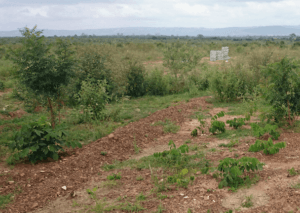Chiefs don’t own stool lands – Commission
 Traditional authorities are not owners of stools lands, Mr. Isaac Yaw Amoabeng, an Assistant Lands Officer said on Tuesday.
Traditional authorities are not owners of stools lands, Mr. Isaac Yaw Amoabeng, an Assistant Lands Officer said on Tuesday.
Rather, he said, chiefs and queens remained trustees and care-takers of stool and family lands and therefore had no legal entitlement or right to sell such lands without the concern of the people.
Mr. Amoabeng stated this at a multi-sectoral stakeholders land forum in Techiman, organised by the Ghana Integrity Initiative (GII), the local chapter of Transparency International (TI), a global civil society organisation leading the fight against corruption.
Attended by civil society and private sector actors and youth groups, the forum created opportunity for the participants to deliberate on policies and reforms in the land sector.
Being facilitated by the Centre of Posterity Interest Organisation (COPIO), a local anti-corruption non-governmental organisation, the forum was in line with the Land and Corruption in Africa Project being implemented by the GII.
Objectives of the project, among others, seek to empower the citizenry to defend the land and tenure right and to demand transparency and accountability from their governments to end corruption in the land sector.
Mr. Amoabeng indicated that land issues and disputes posed a threat to national peace and security and advised traditional rulers to endeavour to engage community people before they release stools or family lands for development projects and also register their stool lands.
In an open forum, many of the participants expressed grave concern about double sale of lands, a situation which was contributing to land disputes and litigations in the country.
Mr. Michael Okai, the Programmes Director of GII, said the effects of corruption in the land sector were enormous as the menace had denied citizens access to potable drinking water, shelter and food.
Corruption, he said had influence on the lives of every citizen, hence the need for everybody to support the fight against the practice.
Mr. Okai advised the youth and community members to always dialogue with their traditional rulers in settling land issues.
Source: GNA
